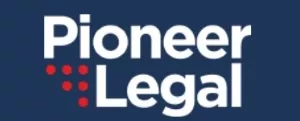- within Food, Drugs, Healthcare and Life Sciences topic(s)
Background
- In the case, vide judgment dated October 18, 2023, the High Court of Jharkhand ("JHC") specified that merely because medical services are provided to the employees, this does not exempt them from the purview of Employee State Insurance Act, 1948 ("ESI Act").
Facts
- This case was in nature of a letter patent appeal ("LPA"), arising out of an order dated February 02, 2023 ("Impugned Order"), passed by a single bench of JHC, whereby it had declined to interfere with an order dated February 25, 2008, ("ESIC Order") passed by the regional director, employee state insurance corporation ("RD-ESIC").
- In the present case, the Belidh Club, Jamshedpur ("Belidh Club") was a society registered under the Societies Act, 1860 and it had received a notice from the employee state insurance inspector ("ESI Inspector") in 2001, requesting records relating to compliance made under ESI Act for the period from October 1996 to August 2001. In response to the notice received from the ESI Inspector, Belidh Club issued a letter dated October 26, 2001, informed that all its employees and their family members receive medical facilities at Tata Main Hospital ("TMH") and are satisfied with the services, hence it is not required to fulfil the requirements for contributions as specified under the ESI Act.
- Despite the Belidh Clubs' response to ESIC, subsequent notices were issued by the ESIC stating that the Belidh Club falls under Section 2(12) of the ESI Act which covers all workers with wages below the prescribed limits. Belidh Club contested the subsequent notices by asserting that it is not an establishment and therefore, it is not covered under the ESI Act. Subsequently, Belidh Club had filed a writ petition, which was disposed of by JHC and whereby Belidh Club was directed to present its grievances before the RD-ESIC. During the proceedings in relation to the said writ, the Belidh Clubs' counsel argued that the fact of the case is similar with that of another Supreme Court ("SC") case, of Bangalore Turf Club Limited V. Regional Director, Employees' State Insurance Corporation3 ("Bangalore Turf Judgment"), wherein it was held that any establishment involved in systematic economic or commercial activity on its premises falls under the purview of the ESI Act. 4. Belidh Club Jamshedpur v. State of Jharkhand [Belidh Club Jamshedpur v. The State of Jharkhand, L.P.A. No. 187 of 2023]
In light of the submissions made, the JHC framed the issues mentioned below:
- Whether the Belidh Club is entitled for any direction from JHC to apply this judgement prospectively i.e., giving coverage under ESIC with effect from the date of passing of the Bangalore Turf judgement, on account of the so-called balancing of equities between the parties?
- Whether the RD-ESIC was justified in extending the coverage of the ESI Act upon the Belidh Club from an earlier date i.e., October 01, 1996 instead of coverage from September 01, 2000 (the date from which assessment was made)?
- Whether the Belidh Club is entitled for any relief on the point of interest on the payable amount?
- Whether the Belidh Club is entitled for fixation of instalments in making the payment of dues?
Analysis
The learned counsel for Belidh Club argued that since medical benefits had already been provided to the employees in collaboration with TMH, there should be no additional discharge of liability as claimed by RD-ESIC. However, JHC held that the Belidh Club is not entitled to remission or relaxation concerning the payment of interest.
JHC emphasized that the petitioner is obligated to fulfil the requirements specified under ESI Act. It noted that the amount, which should have been deposited in the ESI fund, was retained by the Belidh Club for its own purposes, causing the fund to suffer. Consequently, the Single Judge Bench held that the Belidh Club was liable to pay interest. Considering all the facts, the JHC concluded that the order passed by the Single Judge was without error and did not warrant interference. Therefore, in effect, JHC held the decision passed by RD-ESIC to be correct in law.
Originally published 03 April 2024
The content of this article is intended to provide a general guide to the subject matter. Specialist advice should be sought about your specific circumstances.




